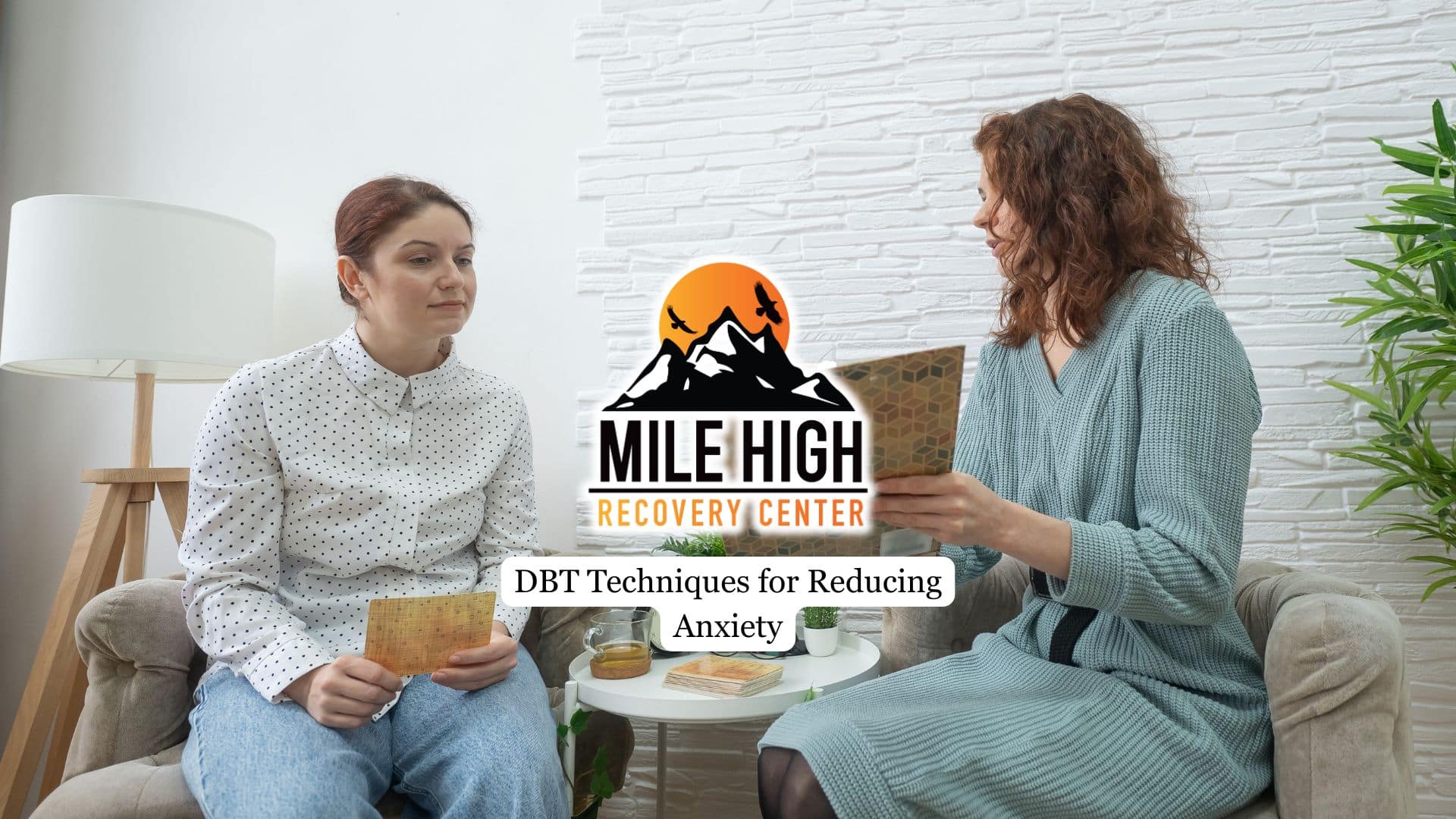Anxiety can feel overwhelming, leaving individuals trapped in cycles of worry, fear, and physical tension. For many, traditional therapy provides some relief, but others benefit from more structured approaches like dialectical behavior therapy (DBT). This evidence-based therapy offers practical skills to help manage anxiety symptoms, regulate emotions, and build resilience.
In this article, we will explore DBT techniques designed to reduce anxiety and explain how they support lasting mental health improvements.

Understanding DBT for Anxiety
Dialectical behavior therapy is a form of cognitive behavioral therapy (CBT) originally developed to treat borderline personality disorder, but has since been shown to be effective in treating anxiety disorders and depression. DBT focuses on four core areas: mindfulness, distress tolerance, emotion regulation, and interpersonal effectiveness. Each skill set offers strategies that help people manage their emotions, reduce symptoms of anxiety, and improve relationships.
Unlike some therapies that only target thoughts, it helps individuals develop tools to stay present, cope with panic attacks, and respond more effectively to stressful situations. These approaches are not only valuable for easing anxious responses but also for supporting those facing addiction, where distress and emotional triggers often overlap.
Mindfulness Skills for Anxiety Management
One of the cornerstones of DBT for anxiety is mindfulness. Mindfulness techniques encourage individuals to focus on the present moment without judgment. For people with generalized anxiety disorder, persistent worry, or those working to overcome addiction, mindfulness skills help reduce overthinking, intrusive thoughts, and feelings of fear.
Practicing mindfulness can look like paying attention to breathing, grounding through sensory awareness, or observing emotions as they arise without reacting to them. These practices allow individuals to calm heightened stress before it escalates into overwhelming tension. These DBT skills not only lessen anxious responses but also support people in outpatient treatment programs, creating a foundation for other DBT skills to be more effective.
Building Distress Tolerance Skills
Anxiety can feel like it demands immediate action or avoidance, but distress tolerance skills teach individuals how to withstand discomfort without resorting to unhealthy coping mechanisms. These strategies are particularly useful during panic attacks or when intense emotions make it difficult to think clearly.
Distress tolerance approaches may include distraction techniques, self-soothing practices, or radical acceptance of the current moment. By learning these methods, individuals build resilience and discover that they can survive intense emotional states without worsening their situation. These tools provide effective ways to handle overwhelming moments and manage stress in real time.
Emotion Regulation Techniques
Emotion regulation is central to treating anxiety. Overwhelming stress can make feelings seem uncontrollable, leading to rapid shifts in mood, heightened fear, and physical tension. DBT focuses on building emotion regulation skills that help individuals identify, understand, and manage their emotions in healthier ways.
Some techniques include improving sleep, exercise, and balanced nutrition to stabilize mood. Others involve identifying triggers that worsen anxiety symptoms and developing proactive strategies to reduce reactivity. This skill set complements other forms of therapy for managing stress.

Strengthening Interpersonal Effectiveness
Anxiety often impacts relationships, whether through avoidance, fear of conflict, or difficulty expressing needs. DBT focuses on interpersonal effectiveness skills, which help individuals communicate more clearly, set boundaries, and navigate relationships without worsening feelings. These skills are especially valuable for people with generalized anxiety disorder or those struggling with social unease.
Interpersonal effectiveness involves learning how to ask for what is needed, say no without guilt, and maintain self-respect in interactions.
The Role of DBT in Anxiety Treatment
DBT is not limited to individual therapy, it can also be practiced through group therapy sessions and skills training workshops where participants learn strategies for managing stress together. A DBT therapist guides individuals through structured exercises, helping them strengthen their use of these evidence-based therapy methods. It is also effective for dual diagnosis, where mental health conditions occur alongside substance use disorders. This provides practical techniques that can be integrated into daily life.
As a form of cognitive behavioral therapy, dialectical behavioral therapy emphasizes learning and practicing concrete skills. This approach focuses on building long-term resilience, offering individuals the tools to handle overwhelming thoughts, regulate emotions, and reduce distress across different situations. Whether delivered in individual therapy or group settings, DBT helps interrupt harmful cycles and offers hope for those struggling with intense worry or fear.
Final Thoughts from Mile High Recovery
Dialectical behavior therapy offers structured, effective strategies for managing stress and emotional overwhelm. By practicing mindfulness, building distress tolerance, applying emotion regulation skills, and strengthening interpersonal effectiveness, individuals can develop lasting tools for better mental health.
At Mile High Recovery in Denver, CO, we integrate DBT alongside other evidence-based treatments to support individuals facing anxiety, addiction, and co-occurring conditions—helping each person build a stable, fulfilling life. Our compassionate team is committed to guiding clients through every step of their healing journey with tools that promote resilience and long-term recovery.







